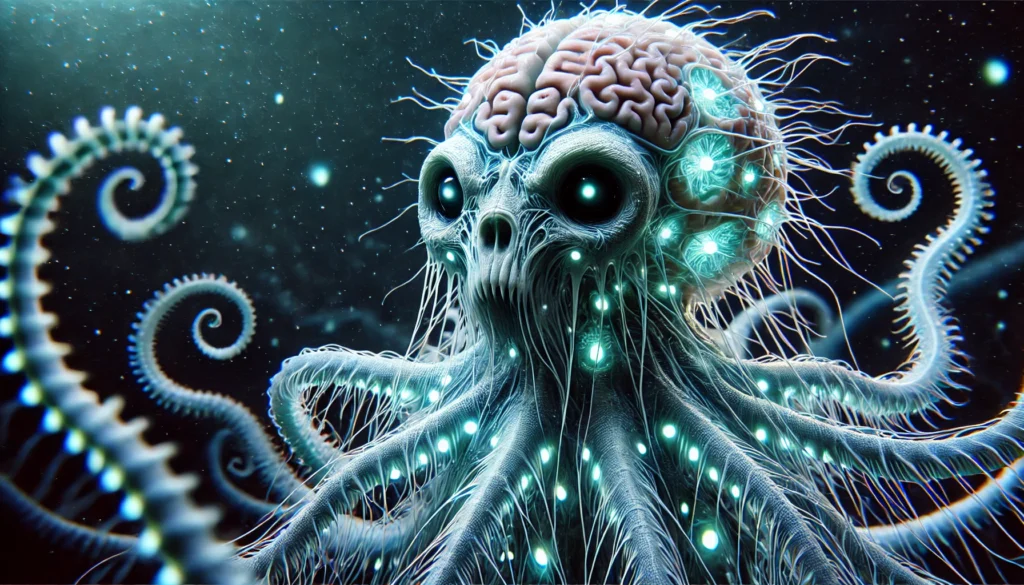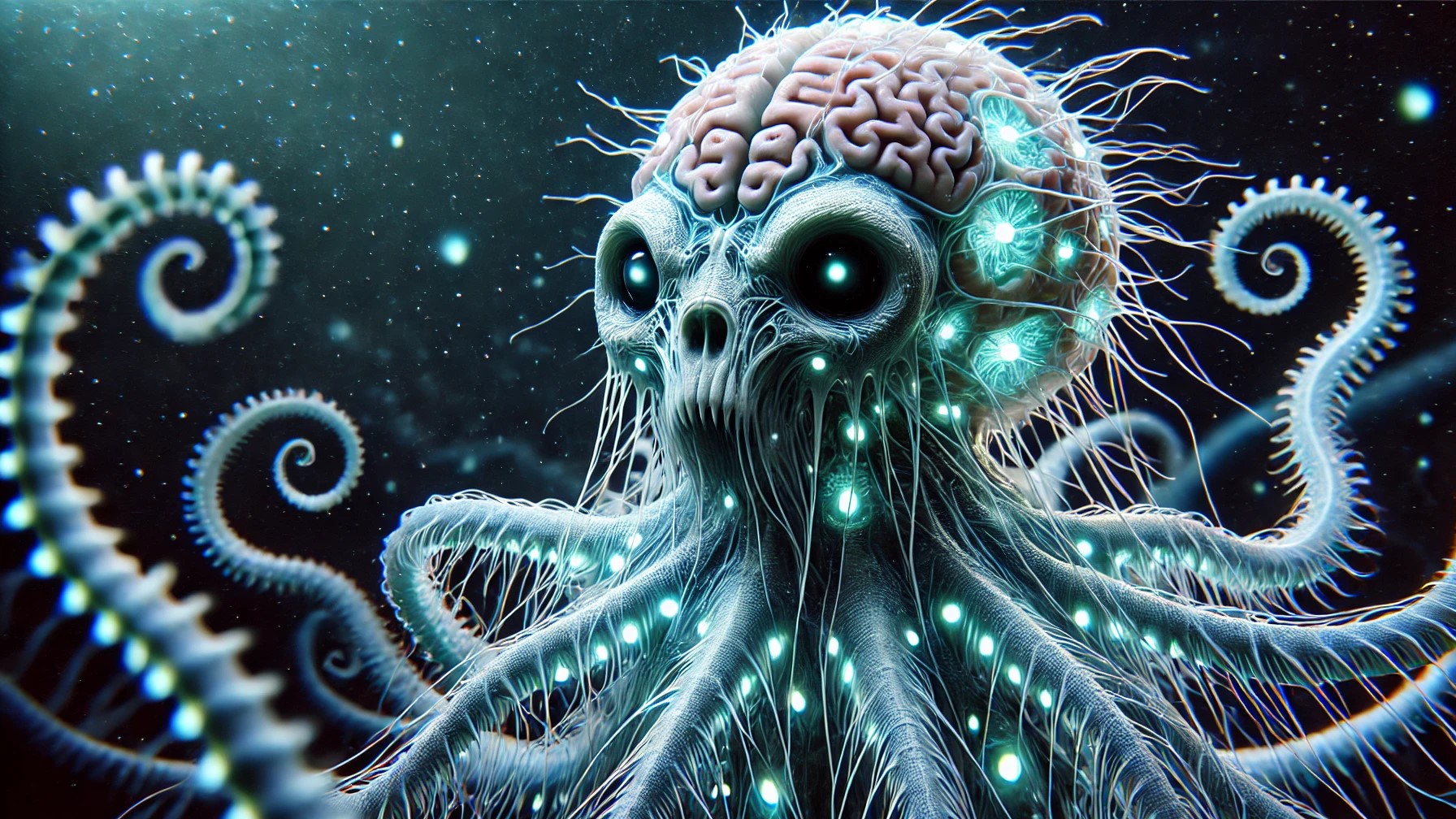The octopus is one of the most fascinating creatures in the ocean. These intelligent marine animals belong to the cephalopod family and are known for their problem-solving skills, camouflage abilities, and unique body structure. With bulbous heads, eight flexible arms lined with suction cups, and a soft, boneless body, octopuses can squeeze into tight spaces and navigate their underwater world with ease.
Octopuses are found in oceans all over the world, from shallow coastal waters to the deep sea. They have a short lifespan, ranging from a few months to a few years, depending on the species. These animals are also famous for their ability to change color and texture, helping them blend seamlessly into their surroundings to evade predators.
A Creature with Nine Brains!
One of the most astonishing facts about octopuses is that they have nine brains! Unlike most animals that have a single central brain, octopuses have a unique nervous system:
- One Central Brain – Located in the head, this brain controls overall functions and decision-making.
- Eight Mini Brains – Each arm has its own mini-brain, allowing the limbs to act independently while still coordinating with the central brain.
This decentralized nervous system enables octopuses to multitask in incredible ways. Their arms can explore, grab objects, and even react to stimuli without waiting for commands from the main brain. Even more fascinating, if an octopus loses an arm, the detached limb can still move and respond for a while!

The Three-Hearted Marvel
In addition to their extraordinary brains, octopuses also have three hearts:
- Two Branchial Hearts – These two hearts pump blood to the gills, where oxygen is absorbed from the water.
- One Systemic Heart – This main heart pumps oxygenated blood to the rest of the body.
Octopuses have blue blood due to the presence of hemocyanin, a copper-rich protein that transports oxygen. This adaptation helps them survive in cold, low-oxygen environments. Interestingly, when an octopus swims, its systemic heart temporarily stops beating, which is why they prefer crawling along the ocean floor rather than swimming for long periods.
A Mind-Blowing Fact!
Did you know that an octopus’s arms can continue functioning even after being severed? Since each arm has its own mini-brain, it can move, react, and even catch prey for a short time after being detached!
From their advanced nervous system to their three-heart circulatory setup, octopuses continue to amaze scientists and ocean lovers alike. These remarkable creatures are a testament to the wonders of marine life!



